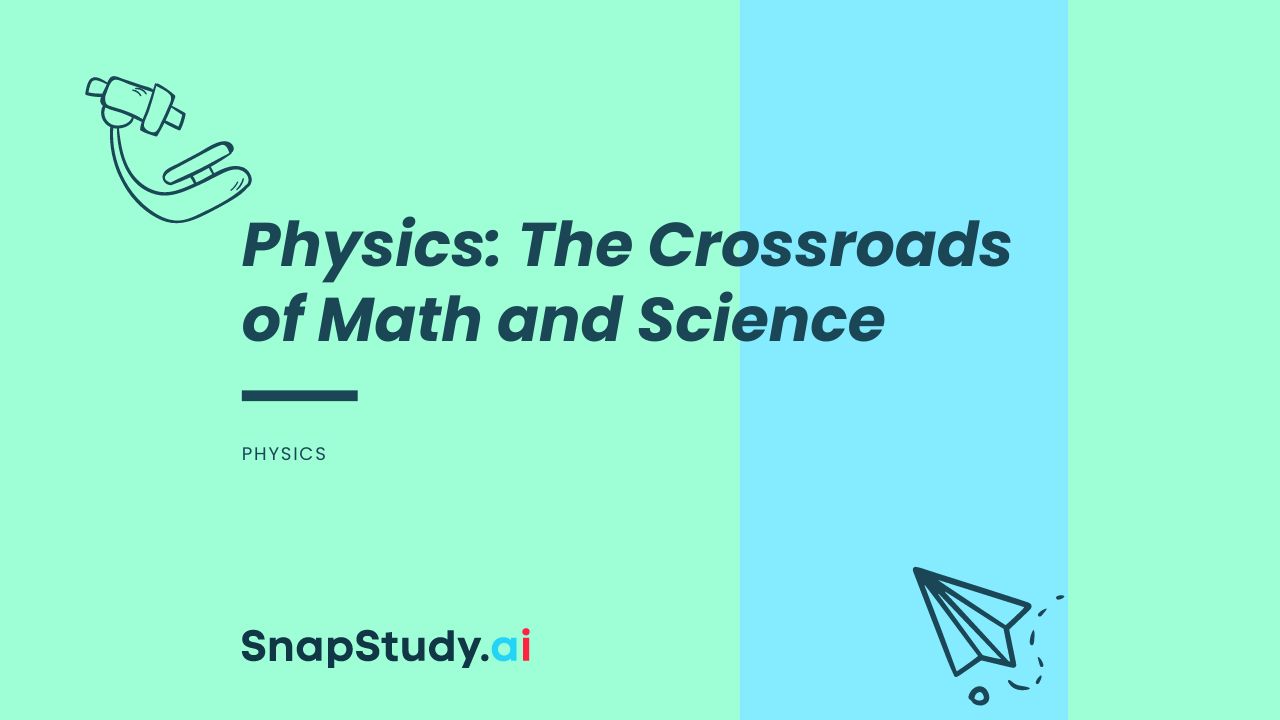Physics, often referred to as “the fundamental science,” sits at the intersection of mathematics and other natural sciences. This unique position allows it to serve as the backbone of our understanding of the natural world. Physics seeks to explain the nature and properties of matter and energy, shining a light on the very fabric of the universe.
The Role of Mathematics in Physics
Mathematics is the language of physics. It provides the framework needed to formulate the theories and laws that govern physical phenomena. Through the application of mathematical principles, physics translates the complexities of the universe into a language we can begin to understand.
Mathematical Models
Physicists use mathematical models to represent physical systems. These models, often in the form of equations, allow predictions to be made about the behavior of these systems. From predicting the trajectory of a thrown object to understanding the motion of planets, mathematical models are an integral tool in the physicist’s toolkit.
The Power of Predictability
One of the most striking features of these mathematical models is their predictive power. Not only do they allow us to understand current observations, but they also enable predictions about future or unseen phenomena. This ability to predict and validate through experimentation is a key feature of the scientific method.
Unifying Theories
Many of the theories in physics are unifying in nature, bringing together different phenomena under a common mathematical framework. These grand theories serve to consolidate our understanding of the universe, providing a consistent description of the physical world.
Theory of Relativity
One such unifying theory is Einstein’s theory of relativity, which revolutionized our understanding of space, time, and gravity. It brought together the physics of the very large (cosmological scales) with the physics of the very fast (speeds approaching the speed of light).
Quantum Mechanics
Quantum mechanics, another unifying theory, provides a mathematical framework for the physics of the very small. This theory describes the strange and counter-intuitive world of atoms and subatomic particles.
The Interplay with Other Sciences
Physics also forms the foundation for many other natural sciences. It provides the fundamental principles that other sciences build upon.
Chemistry
Physics underlies many of the principles and laws in chemistry. For example, the understanding of atomic and molecular structure is rooted in quantum mechanics, a branch of physics. Physics also explains why atoms combine to form molecules and provides the principles behind chemical reactions.
The Quantum World and Chemistry
Quantum mechanics has been instrumental in explaining the behavior of electrons in atoms, which in turn has profound implications for chemistry. Understanding the quantum behavior of electrons helps explain everything from the periodic table to the nature of chemical bonds.
Astronomy
Physics plays a crucial role in our understanding of the universe. The laws of physics govern the behavior of celestial bodies and the nature of space and time.
Physics and the Cosmos
From the lifecycle of stars to the expansion of the universe, the principles of physics apply even at cosmic scales. The laws of motion and gravity help us understand the movement and interaction of celestial bodies. Nuclear physics helps explain the energy output of stars. Relativity contributes to our understanding of black holes and the big bang.
The Future of Physics
The future of physics is bright, with many exciting areas of research. These include string theory, dark matter and energy, and quantum computing.
String Theory
String theory, a potential “theory of everything,” is an area of ongoing research. It proposes that the fundamental constituents of the universe are not particles, but instead tiny, vibrating strings.
Dark Matter and Energy
The mysteries of dark matter and dark energy are another active area of research. These invisible entities make up the majority of the universe, yet we know very little about them.
Quantum Computing
Quantum computing, which leverages the principles of quantum mechanics, promises to revolutionize computing. It has the potential to solve problems that are currently intractable for classical computers.
In conclusion, physics, standing at the crossroads of math and science, uses the language of mathematics to describe the universe and forms the bedrock of many other scientific disciplines. The deep connection between these fields continues to drive our understanding of the natural world, promising exciting discoveries in the years to come.





